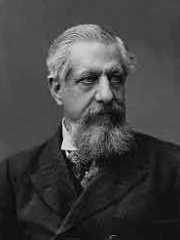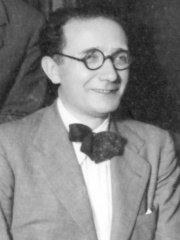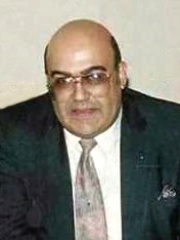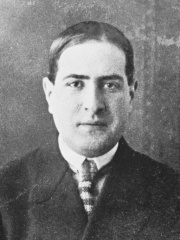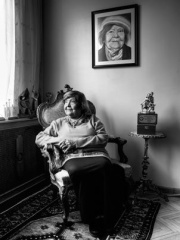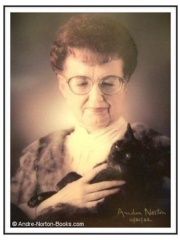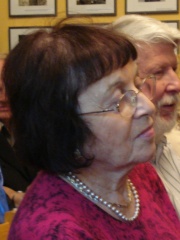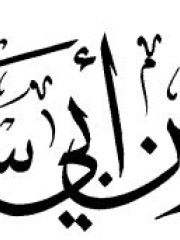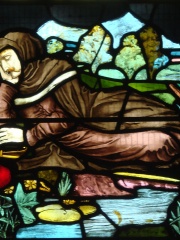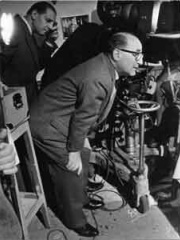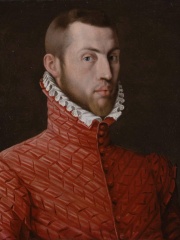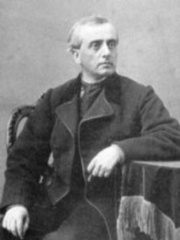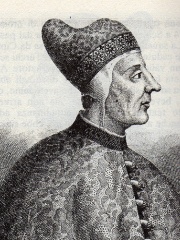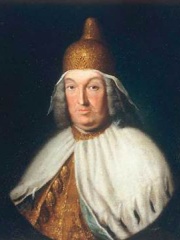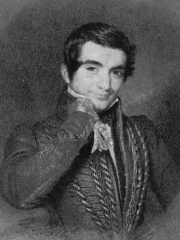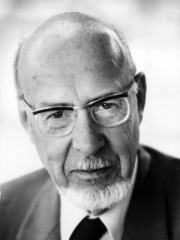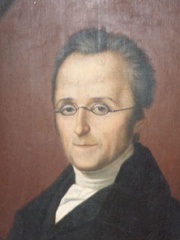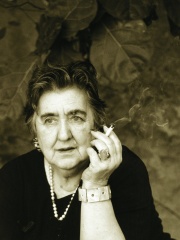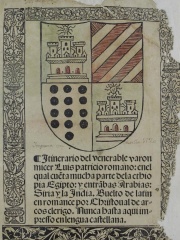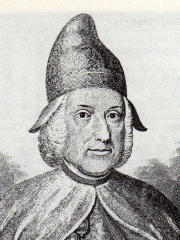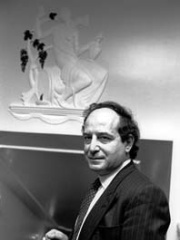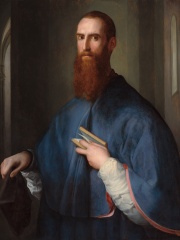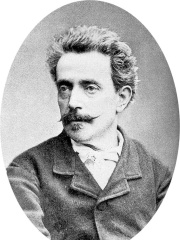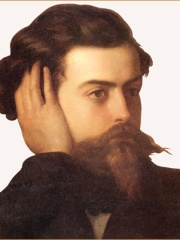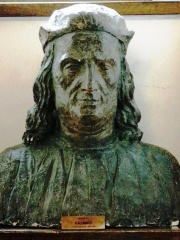WRITER
Aemilius Macer

 Aemilius Macer
Aemilius Macer
Aemilius Macer of Verona was a Roman didactic poet. He authored two poems, one on birds (Ornithogonia), a translation of a work by Boios, and the other on the antidotes against the poison of serpents (Theriaca), which he imitated from the Greek poet Nicander of Colophon. According to Jerome, he died in 16 BC. It is possible that he wrote also a botanical work. The extant hexameter poem known as Floridus or De viribus (aut virtutibus) herbarum, traditionally ascribed to Macer, is actually a medieval production by Odo Magdunensis, a French physician. Read more on Wikipedia
His biography is available in 16 different languages on Wikipedia. Aemilius Macer is the 3,171st most popular writer (up from 5,022nd in 2024), the 2,803rd most popular biography from Italy (up from 3,664th in 2019) and the 187th most popular Italian Writer.
Memorability Metrics
Page views of Aemilius Macer by language
Among WRITERS
Among writers, Aemilius Macer ranks 3,171 out of 7,302. Before him are Edwin Arnold, Alfonso Daniel Rodríguez Castelao, Madeleine de Souvré, marquise de Sablé, Ronald Harwood, Farag Foda, and Mário de Sá-Carneiro. After him are Muazzez İlmiye Çığ, Andre Norton, Robert Penn Warren, Irena Veisaitė, Zuhayr bin Abi Sulma, and William Langland.
Most Popular Writers in Wikipedia
Go to all RankingsEdwin Arnold
1832 - 1904
HPI: 59.94
Rank: 3,165
Alfonso Daniel Rodríguez Castelao
1886 - 1950
HPI: 59.94
Rank: 3,166
Madeleine de Souvré, marquise de Sablé
1599 - 1678
HPI: 59.93
Rank: 3,167
Ronald Harwood
1934 - 2020
HPI: 59.93
Rank: 3,168
Farag Foda
1946 - 1992
HPI: 59.93
Rank: 3,169
Mário de Sá-Carneiro
1890 - 1916
HPI: 59.92
Rank: 3,170
Aemilius Macer
HPI: 59.92
Rank: 3,171
Muazzez İlmiye Çığ
1914 - 2024
HPI: 59.92
Rank: 3,172
Andre Norton
1912 - 2005
HPI: 59.91
Rank: 3,173
Robert Penn Warren
1905 - 1989
HPI: 59.91
Rank: 3,174
Irena Veisaitė
1928 - 2020
HPI: 59.91
Rank: 3,175
Zuhayr bin Abi Sulma
520 - 607
HPI: 59.91
Rank: 3,176
William Langland
1332 - 1386
HPI: 59.90
Rank: 3,177
In Italy
Among people born in Italy, Aemilius Macer ranks 2,803 out of 5,161. Before him are Leonora Dori (1568), Mario Camerini (1895), Vespasiano I Gonzaga (1531), Gabry Ponte (1973), Giuseppe Fiorelli (1823), and Pietro Mocenigo (1406). After him are Milena Canonero (1946), Pietro Grimani (1677), Cesare Pugni (1802), Nicola Di Bari (1940), Appius Claudius Pulcher (-130), and Christian Abbiati (1977).
Others born in Italy
Go to all RankingsLeonora Dori
POLITICIAN
1568 - 1617
HPI: 59.96
Rank: 2,797
Mario Camerini
FILM DIRECTOR
1895 - 1981
HPI: 59.95
Rank: 2,798
Vespasiano I Gonzaga
NOBLEMAN
1531 - 1591
HPI: 59.95
Rank: 2,799
Gabry Ponte
MUSICIAN
1973 - Present
HPI: 59.92
Rank: 2,800
Giuseppe Fiorelli
ARCHAEOLOGIST
1823 - 1896
HPI: 59.92
Rank: 2,801
Pietro Mocenigo
POLITICIAN
1406 - 1476
HPI: 59.92
Rank: 2,802
Aemilius Macer
WRITER
HPI: 59.92
Rank: 2,803
Milena Canonero
DESIGNER
1946 - Present
HPI: 59.91
Rank: 2,804
Pietro Grimani
POLITICIAN
1677 - 1752
HPI: 59.90
Rank: 2,805
Cesare Pugni
COMPOSER
1802 - 1870
HPI: 59.90
Rank: 2,806
Nicola Di Bari
ACTOR
1940 - Present
HPI: 59.90
Rank: 2,807
Appius Claudius Pulcher
POLITICIAN
130 BC - 70 BC
HPI: 59.90
Rank: 2,808
Christian Abbiati
SOCCER PLAYER
1977 - Present
HPI: 59.90
Rank: 2,809
Among WRITERS In Italy
Among writers born in Italy, Aemilius Macer ranks 187. Before him are Titus Burckhardt (1908), Silvio Pellico (1789), Alda Merini (1931), Ludovico di Varthema (1470), Marco Foscarini (1696), and Roberto Calasso (1941). After him are Giovanni della Casa (1503), Antonio Ghislanzoni (1824), Goffredo Mameli (1827), Alfredo M. Bonanno (1937), Remmius Palaemon (100), and Filippo Buonaccorsi (1437).
Titus Burckhardt
1908 - 1984
HPI: 60.32
Rank: 181
Silvio Pellico
1789 - 1854
HPI: 60.27
Rank: 182
Alda Merini
1931 - 2009
HPI: 60.23
Rank: 183
Ludovico di Varthema
1470 - 1517
HPI: 60.07
Rank: 184
Marco Foscarini
1696 - 1763
HPI: 60.06
Rank: 185
Roberto Calasso
1941 - 2021
HPI: 60.01
Rank: 186
Aemilius Macer
HPI: 59.92
Rank: 187
Giovanni della Casa
1503 - 1556
HPI: 59.89
Rank: 188
Antonio Ghislanzoni
1824 - 1893
HPI: 59.83
Rank: 189
Goffredo Mameli
1827 - 1849
HPI: 59.83
Rank: 190
Alfredo M. Bonanno
1937 - 2023
HPI: 59.80
Rank: 191
Remmius Palaemon
100 - 100
HPI: 59.77
Rank: 192
Filippo Buonaccorsi
1437 - 1497
HPI: 59.70
Rank: 193
